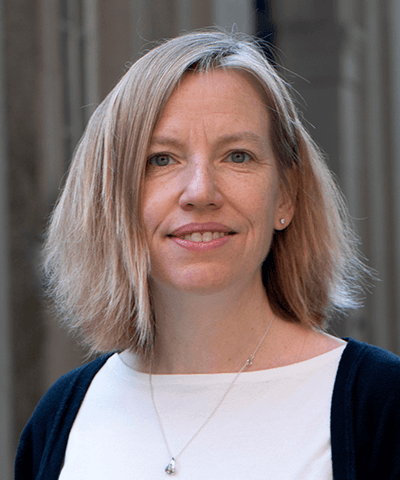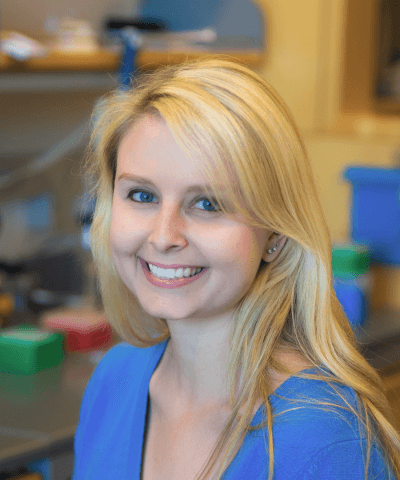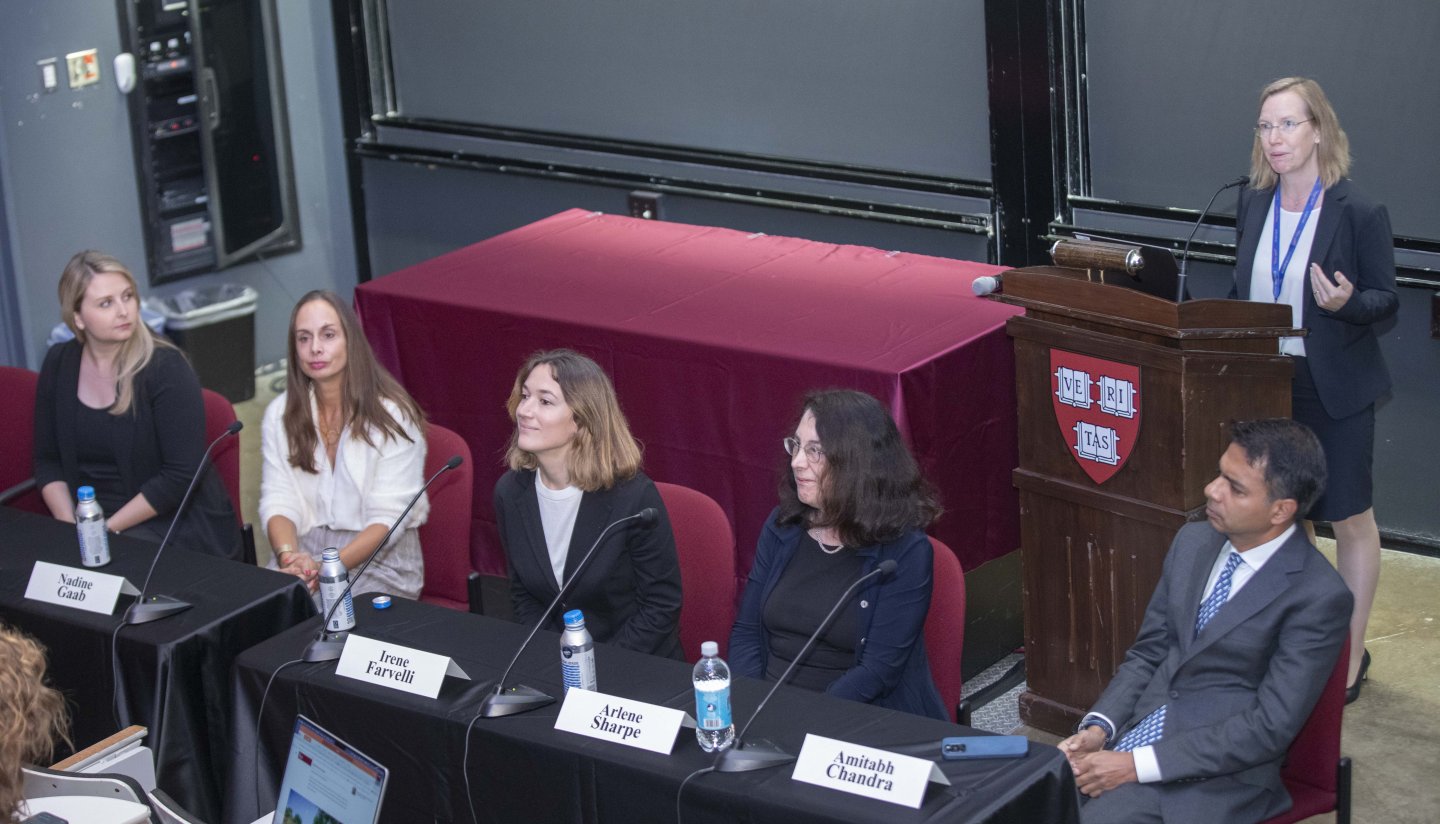
This article has been modified from the Harvard Gazette. Click here to read the original.
The inauguration of President Claudine Gay on September 29th kicked off with a series of academic symposiums highlighting opportunities and challenges facing Harvard, the academy, and the world at large.
One panel, “Innovating for Impact: Science for the Mind and Body in the 21st Century,” moderated by Amy Wagers, the Forst Family Professor of Stem Cell and Regenerative Biology and the chair of the Department of Stem Cell and Regenerative Biology, discussed Harvard’s biomedical research and the field’s untapped potential in improving health outcomes for billions around the world.
“I really wanted to highlight the many facets of innovation that are needed to realize the full potential of biological discoveries, spanning from the first arc of an idea to the experiments in their early days to the discoveries — and ultimately their application — in the real world,” Wagers said.
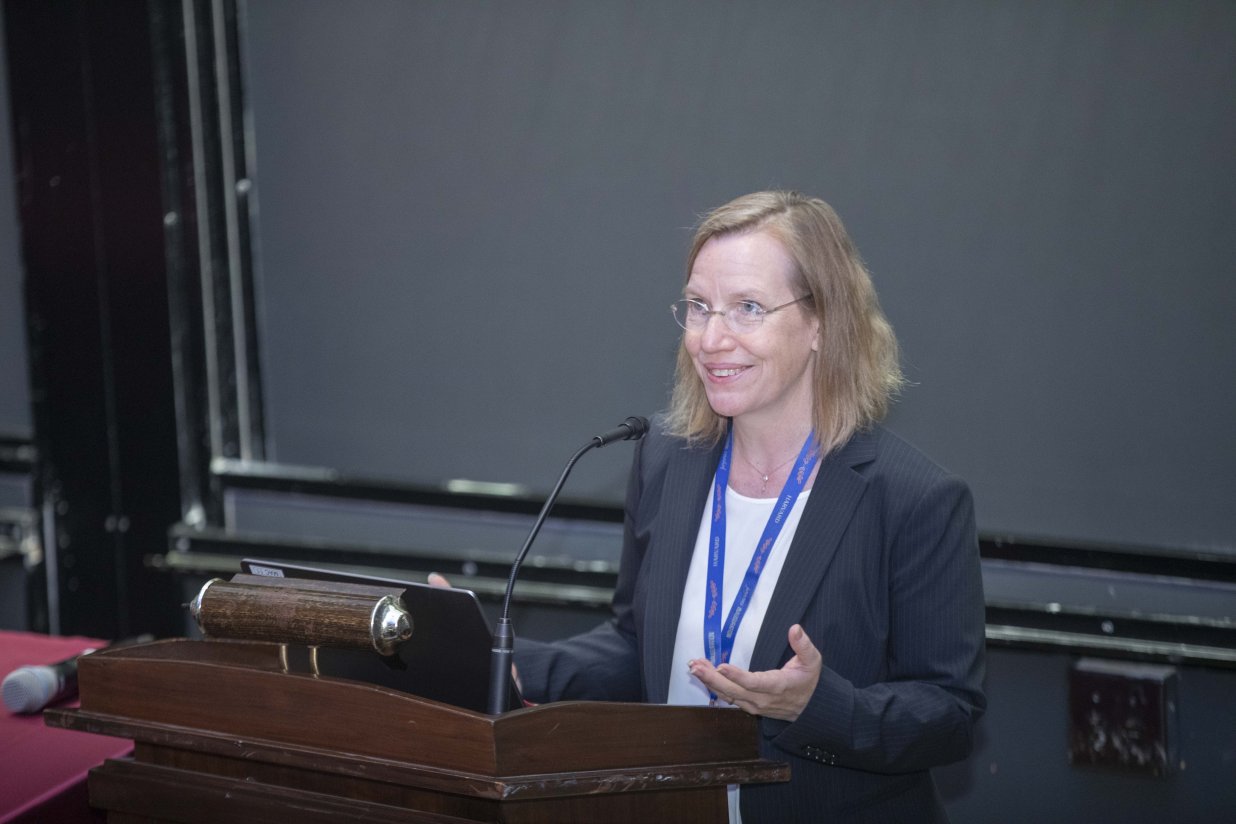
And the first step, all agreed, was to be unafraid to take leaps.
“We need to take big risks to solve hard problems,” said Kara McKinley, one of the panelists and an assistant professor at the Harvard Stem Cell Institute. McKinley leads a lab that seeks to advance regenerative medicine by studying a repair mechanism in the uterus that may offer insights into how we can harness natural processes to heal wounds. “Because in the end, this is really the goal, to create cures and to do science that is in service to humankind,” she said.
During the event, panelists engaged with the attendees, asking questions and encouraging them to discuss ideas with the people seated next to them.
Arlene Sharpe is the Kolokotrones University Professor and chair of the Department of Immunology at Harvard Medical School. Her lab focuses on whether we can train our own immune cells to better fight infection and cancer.
Sharpe played a video of T cells delivering “the kiss of death” to cancer cells. She turned to the audience and said, “I could watch this all day,” eliciting chuckles around the room.
“One of the most exciting things about being at Harvard is the collaboration,” said Sharpe, who is also a member of the Broad Institute and the leader of the Cancer Immunology Program at the Dana-Farber/Harvard Cancer Center. “One of the things that kept me here all these years is the ability to work with people. Wherever my science takes me, there are wonderful collaborations that develop that enable us to work together.”
Other panelists included Nadine Gaab, an associate professor in the Graduate School of Education who specializes in developmental cognitive neuroscience as it relates to learning disabilities; Irene Faravelli, a neurologist and postdoctoral research fellow in the Department of Stem Cell and Regenerative Biology; and Amitabh Chandra, an economist and the Henry and Allison McCance Family Professor of Business Administration at Harvard Business School.
During the Q&A portion of the event, all panelists agreed that more investment in the broader science community is needed if we want to address some of the world’s most pressing health issues — and not just a greater commitment of dollars, but human investment.
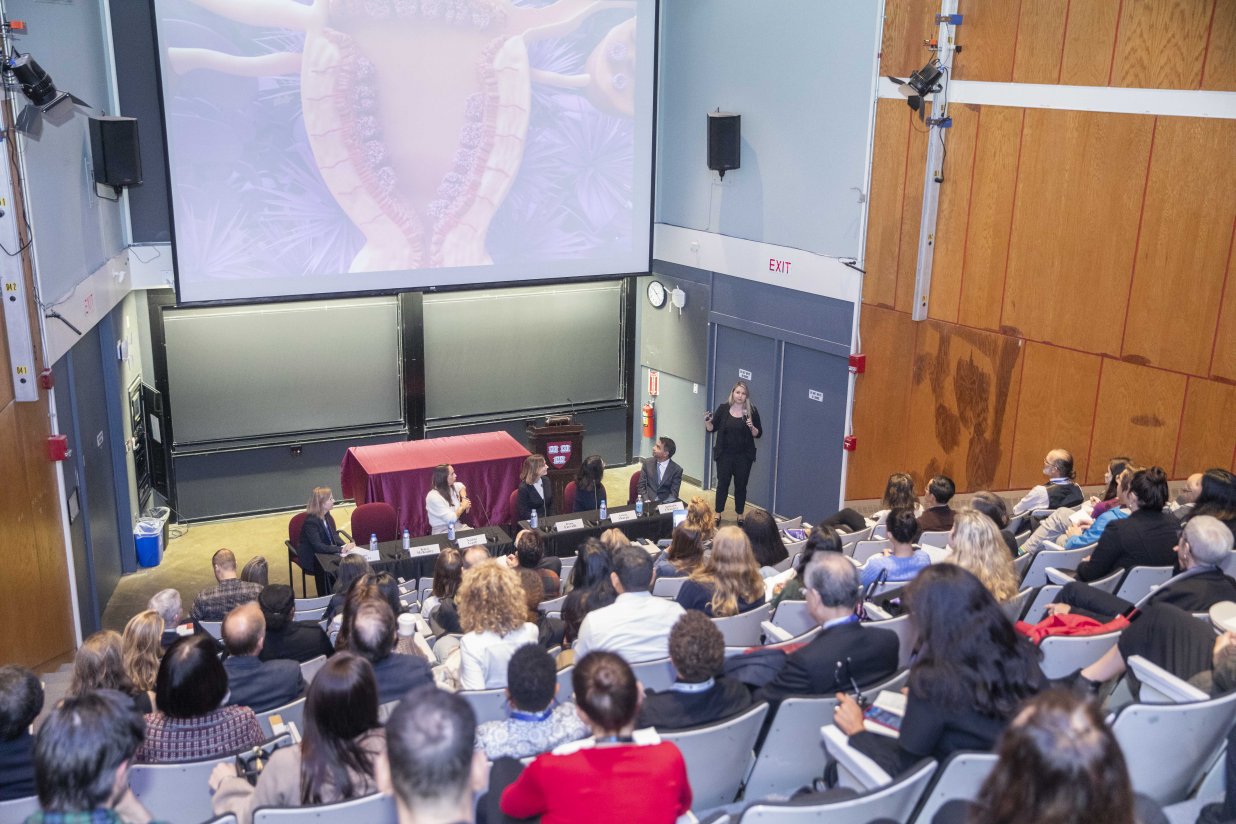
“The impediment to missing innovations is no longer capital,” said Chandra, who is also the Ethel Zimmerman Wiener Professor of Public Policy and Director of Health Policy Research at Harvard Kennedy School of Government. “[B]ut the people who are capable of discovering them are not entering the life sciences.” Some of them, he noted, never make it to an institution of higher education because they lack the necessary economic and educational opportunities.
Harvard, according to Chandra, produces nearly 4 percent of the world’s basic science. As a significant producer of research, the University has a role to play in equipping current and future generations of scientists to further advance the boundaries of knowledge, especially scientists from historically underrepresented backgrounds.
“There is really an urgent need to increase the diversity of people who do science to make science look like the people that our science seeks to serve,” said McKinley.
